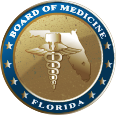In addition to helping identify victims of human trafficking, health care professionals can also provide much-needed physical, mental, and dental health care. Here is one example from the legal practice where a health care professional could have assisted a client:
After being freed from the conditions of her trafficking, my client had great need for mental health services in the form of counseling, but we had trouble locating a Spanish speaking therapist who accepted Medicaid. Additionally, my client was suffering from an abscess tooth that required immediate attention from a dentist. Her needs are not unique: most victims of human trafficking suffer from malnutrition and therefore are subject to severe dental decay and pain. Through community connections we were able to find a dentist who agreed to remove our client’s tooth at no charge, while we translated. Clearly, it would be wonderful if other health care providers throughout the state could provide similar services, on a case by case basis, for the occasional survivor of human trafficking that ends up needing their assistance. Perhaps physicians and other health professionals could talk to their local and state professional associations about establishing programs to provide needed services on a pro bono basis to victims of human trafficking needing urgent attention for their medical issues.
The growth of medical-legal partnerships, in which doctors, particularly in safety-net clinics and hospitals, work together with pro-bono attorneys to address both the medical and legal needs that are affecting the health of the patients/clients, has the potential to improve care for victims of human trafficking.
Medical Legal Partnerships serve vulnerable populations in three ways:
- Lawyers join the healthcare teams by providing direct legal assistance to patients/clients who have unaddressed legal needs that are affecting their health.
- Lawyers and medical professionals can work together to shape institutional policy and provide better preventative care to patients/clients before their issues become medical or legal emergencies.
- Medical Legal Partnership teams can use their combined experience to advocate for laws that better protect the health of vulnerable populations.41
Legal advocates play an important role is assisting victims of human trafficking. Lawyers can help train medical professionals to recognize victims of human trafficking,42 and they can help trafficking victims find legal remedies that will help them find security and rebuild their lives. Trafficking victims who have left their trafficker often face threats and intense pressure to return. 43 While the state will often prosecute traffickers, it can also be helpful in cases where the trafficker is a spouse, family member, or significant other for some victims to receive civil orders of protection against their abusers, which subject the trafficker to criminal liability for attempting to re-recruit or threaten the victim as they are trying to rebuild their lives.44





